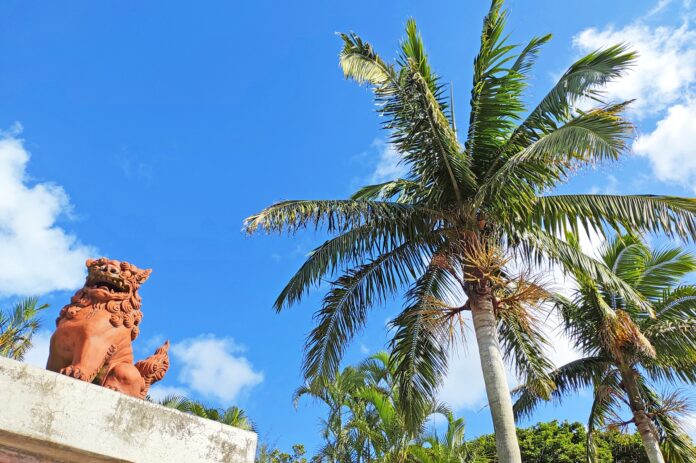Holidays and events in Japan and Okinawa and their meanings
Throughout the year, Japan and Okinawa are filled with events that celebrate nature and the importance of human connection.
From traditional customs to school events, experiencing these deeply rooted aspects of daily life can make your time in Japan even more meaningful.
By learning the meanings behind each tradition, we hope you will find even more ways to enjoy and appreciate life in Japan.
🌸 Spring (March–May)
| March: Girls festival – Hinamatsuri (March 3rd) | A traditional event wishing for the healthy growth of girls. Families display dolls and enjoy festive foods like chirashi sushi and amazake. |
| March: Graduation Ceremonies (School Events) | In Japan, graduation ceremonies are held in March as the school year ends. |
| March–April: Beach Opening (Okinawa) | It’s still chilly, but some days are perfect for enjoying the beach. |
| April: Seimei Festival (Shī-mī) in Okinawa | A traditional Okinawan event where families gather to clean ancestral graves and share and enjoy a meal at the site. |
| April: Entrance Ceremonies (School Events) | Unlike the simple “First Day of School” in other countries, Japan holds formal ceremonies to celebrate the beginning of the new academic year. Parents and even grandparents often attend. |
| April 29: Shōwa Day (National Holiday) | A day to honor the birthday of Emperor Shōwa and reflect on Japan’s history. Part of “Golden Week,” a major holiday season. |
| May 3–5: Constitution Memorial Day, Greenery Day, and Children’s Day (National Holidays) | On Children’s Day, families decorate with carp streamers (koinobori) to celebrate boys’ growth. Best weather and temperature for travel. Hotels and tourist destinations are extremely crowded, and accommodation prices across Japan skyrocket. If traveling during this period, be prepared! |
| May–June: Hā-rī (Okinawan Traditional Event) | A dragon boat race to pray for maritime safety and a bountiful catch, held grandly in places like Naha and Itoman. |
☀️ Summer (June–August)
| June 23: Memorial Day – Irei day (Okinawa) | A solemn day to remember the end of the Battle of Okinawa and honor those who lost their lives. Schools across the prefecture close, and moments of silence and peace education activities are held. |
| July 7: Star Festival – Tanabata | A day to make wishes upon the stars. People write their dreams and wishes on colorful strips of paper and hang them on bamboo branches. In preschools and kindergartens, children often wear traditional jinbei or yukata. You can easily find these at stores like Aeon, San-A, or Bunny Store (specializing in Japanese children’s clothing), but popular designs sell out quickly, so if you find a good one, get it quickly! |
| July: Summer Break | Most Japanese schools have summer vacation from mid-July through the end of August. Short vacation than UK. |
| Obon in Okinawa (August or September, based on the lunar calendar) | A Buddhist tradition to welcome the spirits of ancestors. Families gather, share traditional dishes like jūshī (Okinawan seasoned rice), and enjoy performances like Eisa and Michi-junee (street parades). The days are known as Unkē (first day), Nakabi (middle day), and Ukui (final day). Some companies even close for the holiday. During Obon, it is said that spirits return home, and many Okinawans avoid swimming in the ocean, fearing that wandering spirits might pull them into the sea — a story passed down through generations. |
🍁 Autumn (September–November)
| September: Respect for the Aged Day & Autumn Equinox Day (National Holidays) | Two holidays that encourage respect for elders and appreciation for nature. As these holidays often create a longer break, some people call this period “Silver Week,” inspired by May’s “Golden Week.” |
| October: Great Tug-of-War (Okinawa) | Massive tug-of-war events are held in places like Naha and Yonabaru, where participants pull on ropes thick enough for people to sit on! |
| September–October: School Sports Day | A major event on the school calendar. Families join to cheer on relay races, ball toss games, dance performances, Eisa, and more, making for a lively and exciting day. |
| November 3: Culture Day (National Holiday) / Shuri Cultural Festival | A day dedicated to celebrating culture and freedom. Art festivals and school fairs are often held across Japan. |
❄️ Winter (December–February)
| December 25: Christmas | Most Japanese are not Christian, but still Christmas is widely celebrated. In families with young children, “Santa Claus (Santa-san)” brings gifts. A typical Christmas meal includes a cake with whipped cream and strawberry on top, KFC fried chicken, and sparkling juice. For teenagers and young adults, Christmas becomes more of a romantic holiday for couples, who exchange gifts and enjoy elegant dinners at restaurants. (From a true Christian perspective, this might not be considered Christmas—but think of it as Japan’s own unique version of the holiday. We just want to have events I guess.) |
| December: End of Term Ceremony & Winter Break (School Event) | Students enter their winter vacation usually Dec 25 – Jan 3, which includes New Year’s holidays. |
| December 31: New Year’s Eve | Families eat soba noodles (“Okinawa soba” in Okinawa and buckwheat soba in mainland Japan) to welcome the new year. Many visit shrines for “Hatsumode,” the first shrine visit of the year. In Okinawa, where there are fewer shrines, popular sites like Naminoue Shrine and Futenma Shrine become very crowded. |
| January 1: New Year’s Day (National Holiday) | A major holiday in Japan, celebrated with family gatherings, traditional “osechi” meals (not in Okinawa), and giving “otoshidama” (New Year’s money) to children. |
| February 3: Setsubun | A traditional event to throw away evil spirits and invite good luck by throwing beans to attack demons. It’s often celebrated with fun activities in pre-schools. |
| February 14: Valentine’s Day | In Japan, girls give chocolate to the boys they like as a form of confession. On March 14, known as “White Day,” boys return the favor by giving candy or gifts. |




